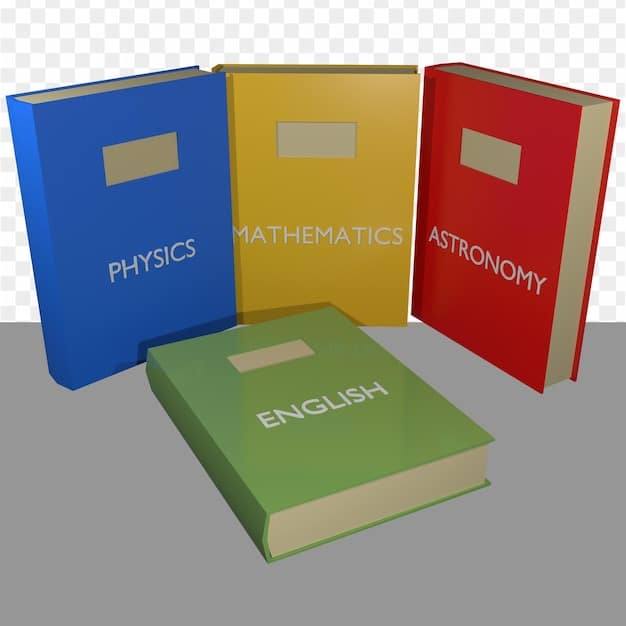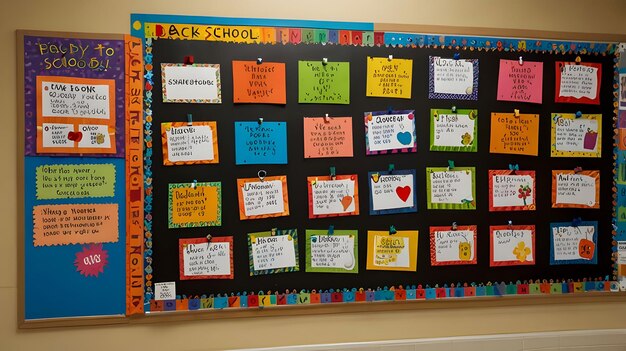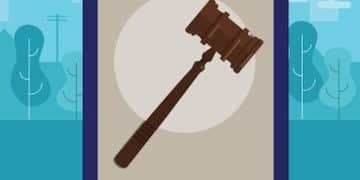The Ultimate Guide to Using ‘The’ Effectively

The is a definite article in English, used to specify a particular noun and provide clarity in communication by indicating a specific item or concept known to both the speaker and the listener.
Understanding how to use the correctly can significantly improve your English writing and speaking. This small word plays a vital role in clarifying your meaning and ensuring your message is accurately conveyed.
The Definitive Purpose of ‘The’
The word “the” is a definite article in the English language. Its primary role is to specify a particular noun, making it clear to the audience which item or concept you are referring to. Essentially, “the” helps to narrow down the subject, providing context and clarity in communication.
By using “the,” you are indicating that the noun is specific and identifiable. It implies that the listener or reader already knows what you are talking about, or that you are about to provide enough context to make it clear.

Grammatical Context: ‘The’ vs. ‘A’ and ‘An’
To fully grasp the usage of “the,” it’s essential to differentiate it from the indefinite articles “a” and “an.” While “the” specifies a particular noun, “a” and “an” introduce a non-specific or new noun into the conversation.
Here’s a breakdown of how these articles differ:
Definite Article: ‘The’
“The” is used when referring to something specific or already known:
- The sun is bright today.
- I returned the book you lent me.
- The car needs to be washed.
Indefinite Articles: ‘A’ and ‘An’
“A” and “an” are used when referring to something non-specific or introducing a new noun:
- I saw a cat in the garden.
- She’s reading a book.
- An apple a day keeps the doctor away.
Understanding these distinctions is critical for accurate and clear communication. Choose your articles carefully to ensure your meaning is understood precisely.
In summary, while “a” and “an” introduce general or new items, “the” points to a particular, identifiable one, creating a more focused and specific statement.
Common Scenarios When ‘The’ is Essential
There are several typical situations where using “the” is not just correct, but essential for conveying the right meaning. Recognizing these scenarios can greatly enhance your confidence in using this definite article.
Let’s explore some of the most common cases:

Specific or Unique Places
When referring to particular places or locations, “the” is often used. This is especially true for rivers, seas, oceans, and landmarks:
- The Amazon River is the largest river in the world.
- The Pacific Ocean is vast and deep.
- The Eiffel Tower is a famous landmark in Paris.
Objects Considered Unique
For objects that are considered one-of-a-kind or unique, such as the sun, the moon, or the earth, “the” is also appropriate:
- The sun rises in the east.
- The moon orbits the earth.
- The earth is our home.
Superlatives and Ordinal Numbers
When using superlatives (best, worst, tallest, etc.) or ordinal numbers (first, second, third), “the” is usually required:
- She is the best student in the class.
- He was the first person to arrive.
- This is the most beautiful painting I’ve ever seen.
These are just a few examples of scenarios where using “the” is crucial. Mastering these patterns will improve the accuracy and clarity of your English communication.
In addition to these cases, remember to use “the” when referring to a specific item that has already been introduced in the conversation or text, reinforcing the element of specificity.
When to Avoid Using ‘The’: Common Mistakes
Knowing when *not* to use “the” is just as important as knowing when to use it. Overusing “the” can clutter your writing and speaking, making it sound unnatural or incorrect.
Here are some typical scenarios where “the” should be avoided:
General Plural Nouns
When discussing something in general terms, avoid using “the” with plural nouns:
- Incorrect: The dogs are loyal animals.
- Correct: Dogs are loyal animals.
- Incorrect: The books are expensive.
- Correct: Books are expensive.
Names of Countries and Places
Generally, do not use “the” before the names of countries, cities, or states, unless the name includes a descriptive noun:
- Incorrect: The France is a beautiful country.
- Correct: France is a beautiful country.
- Exception: The United States of America.
Names of Meals, Sports, and Subjects
Avoid using “the” before the names of meals, sports, or academic subjects:
- Incorrect: The breakfast was delicious.
- Correct: Breakfast was delicious.
- Incorrect: He plays the football.
- Correct: He plays football.
- Incorrect: She is studying the mathematics.
- Correct: She is studying mathematics.
Avoiding these common mistakes will help you sound more natural and confident in your English usage. Knowing when to omit “the” is crucial for effective communication.
By understanding these nuances, you can avoid common pitfalls and ensure your writing and speaking are clear, concise, and grammatically sound.
Advanced Techniques: Refining Your Use of ‘The’
Once you’ve mastered the basics, you can start to refine your use of “the” with more advanced techniques. These subtle nuances can help you communicate with greater precision and sophistication.
Here are a few advanced tips to consider:
Using ‘The’ for Emphasis
Sometimes, “the” can be used to emphasize a particular item or feature. This is often done in descriptive writing or when making a specific point:
- He isn’t just a doctor; he’s *the* doctor for this kind of rare disease.
- This isn’t just any cake; it’s *the* cake my grandmother used to make.
Implied Knowledge and Context
In some cases, “the” is used when the context implies that the item is already known or understood, even if it hasn’t been explicitly mentioned previously:
- How was *the* meeting? (Implies a specific meeting that both speakers know about)
- Did you feed *the* cat? (Implies a specific cat that the speakers share)
‘The’ Followed by an Adjective
When “the” is followed by an adjective referring to a group of people, it indicates that entire group:
- The rich often have different problems than the poor.
- The elderly are at higher risk during flu season.
These advanced techniques can add depth and precision to your communication. They allow you to convey subtle meanings and tailor your language to specific contexts.
By incorporating these strategies, your English will sound more natural, nuanced, and sophisticated, enhancing your ability to connect with your audience.
Real-World Examples: ‘The’ in Everyday Communication
To solidify your understanding of “the,” let’s look at some real-world examples of how it’s used in various contexts. These examples demonstrate the practicality and importance of this little word in everyday communication.
Consider these scenarios:
In Conversation
- “Did you see *the* movie I recommended?” (Referring to a specific movie already discussed.)
- “I need to go to *the* grocery store after work.” (Referring to a specific store that the speaker frequents.)
- “He is *the* best player on the team.” (Using a superlative to identify the top performer.)
In Writing
- “The findings of *the* study were significant.” (Referring to a particular research study.)
- “She lives in *the* house on the corner.” (Indicating a specific, identifiable house.)
- “The impact of *the* internet on society is undeniable.” (Discussing the widespread and unique effect of the internet.)
In News Headlines
- “The President Announces New Policy.”
- “The City Braces for Storm.”
- “The Stock Market Sees Record Gains.”
These examples highlight how “the” is used across different mediums to specify nouns, provide context, and convey clear, concise information. By recognizing these patterns, you can better apply “the” in your own communication.
These real-world scenarios demonstrate the versatility and importance of mastering the usage of “the” for effective and precise communication.
| Key Concept | Brief Description |
|---|---|
| 🎯 Definite Article | ‘**The**’ specifies a particular noun. |
| 🆚 ‘The’ vs. ‘A/An’ | ‘A/An’ introduce non-specific nouns. |
| 🌎 Unique Places | Use ‘**the**’ for oceans, rivers, landmarks. |
| 🚫 Common Mistakes | Avoid with general plurals and countries. |
Frequently Asked Questions About ‘The’
▼
Use ‘the’ before a country’s name if the name includes a descriptive noun like “United,” “Republic,” or “Kingdom.” For example, “The United States,” “The Dominican Republic,” and “The United Kingdom.” Otherwise, omit ‘the’ (e.g., “France,” “Germany”).
▼
No, not all place names require ‘the.’ Generally, use ‘the’ before rivers (the Amazon), oceans (the Pacific), seas (the Mediterranean), and specific landmarks (the Eiffel Tower). Omit ‘the’ before individual mountains, lakes, and most city or state names.
▼
Yes, ‘the’ can be used with uncountable nouns when referring to a specific instance or quantity. For example, “The water in this bottle is cold” specifies particular water. Without ‘the,’ “Water is essential for life” refers to water in general.
▼
‘The’ makes a sentence specific. Compare “I saw a dog” (any dog) with “I saw the dog” (a particular dog known to both speaker and listener). ‘The’ narrows down the reference, providing clarity and context to the noun.
▼
Yes, there can be some regional variations. For example, some dialects might include ‘the’ before hospital (“He’s in the hospital”), while others omit it (“He’s in hospital”). These differences are minor but worth noting when communicating across regions.
Conclusion
Mastering the use of “the” is an essential step in achieving fluency and accuracy in English. By understanding its role in specifying nouns, recognizing common usage scenarios, and avoiding frequent mistakes, you can significantly enhance your communication skills and express yourself with clarity and confidence.






